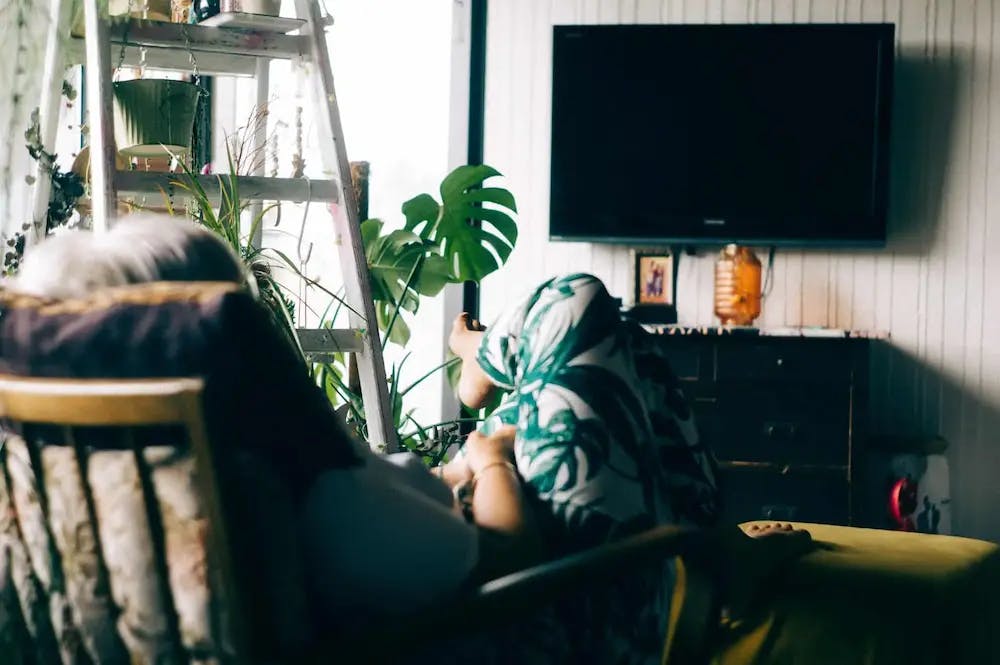TV Licences in Care Homes: Everything You Need to Know

Estimated Reading Time: 6 minutes
If you or your loved one are moving into a care home, several things must be sorted out in advance. One of these is whether or not a TV licence is needed, and if so, how to arrange this. That’s why we’ve created a guide explaining how TV licences in care homes work.
This article answers whether you need a TV licence in a care home, how to move an existing one to a care home, how to get a new one, and other discounts available.
Kickstart your care search
Discover the best care homes in your area through Lottie.
In this article:
- Do I need a TV licence in a care home?
- Is a TV licence needed in communal care home areas?
- How to move an existing TV licence to a care home
- How to get a new TV licence
- Can I get a free TV licence or discount in a care home?
- What if I’m not taking a TV into the care home?
Do I Need a TV Licence In a Care Home?
You’ll need a full TV licence to watch TV in your own care home room.
If your loved one is moving into a care home, you may want to consider helping them get a TV and a TV licence so they can watch television in their room. This is a popular way for residents to unwind and relax by themselves.
Sometimes, care homes will provide private TVs in bedrooms for residents. Here, a TV licence isn’t needed, as the home will cover this.
Is a TV Licence Needed In Communal Care Home Areas?
Most care homes have one or more communal areas for residents to enjoy watching TV together, such as a care home lounge.
You won’t need your own TV licence to watch TV in these communal areas. When it comes to communal care home spaces, the manager’s job is to ensure residents, staff and guests are covered by a TV licence.

We’re here to help you find the right care home for you or your loved one. You can request a free list of care homes from our care experts, who will then share homes matching your budget, location and type of care needed. You can also search for a care home through our easy-to-use directory.
How To Move An Existing TV Licence To a Care Home
If you’re moving into a care home and wish to bring your own TV, you’ll need to update your current TV licence so it’s registered to the address of the care home.
You can update your address through TV Licensing, or tell the Department for Work and Pensions of your new address. You’ll need to provide your current licence number and old and new address (including the room number at the care home you’ll live in).
You must also let the Department for Work and Pensions know if anybody else lives in the home you’re moving out of. If somebody is, they might need to take out a new licence.
How To Get a New TV Licence
You’ll need a TV licence in a care home if you plan on watching, downloading or recording programmes on a TV, computer or any other device. This applies to live, catch-up and on-demand television.
You can apply for a TV licence through the TV Licensing website.
During this application process, you’ll be asked for all relevant information, such as your address.
A TV licence is currently £169.50 per year per household. So, unless you’re eligible for a discount or special licence, it would also cost £169.50 in a care home to use a TV in your bedroom for a year.
Can I Get a Free TV Licence Or Discount In a Care Home?
If you’re retired and over 60 (or are classed as disabled) and living in a care home, supported living, sheltered accommodation or warden controlled housing, you could be eligible for an Accommodation for Residential Care (ARC) licence.
This costs just £7.50 per room or flat and is aimed at people who want to watch TV within their own accommodation.
You can apply for this licence by speaking with your care home manager or housing warden. If eligible, they can arrange this for you or your loved one.
More information about ARC licences can be found here.
We have a guide explaining the other instances in which you could be eligible for a free or discounted TV licence. We’ve also explained these circumstances below.
If you get Pension Credit
If you’re aged 75 or over and receive Pension Credit, you can get a free TV licence. You can claim Pension Credit in a care home, but it will be classed as income during a financial assessment when working out if you have to pay for care.
You can also apply for a free TV licence if you’re 74 and receive Pension Credit. In this case, you’ll pay until the end of the month before your 75th birthday, before switching to a free licence.
You can apply for a free TV licence through the TV Licensing website. You can also apply by calling 0300 791 6071.
If you’re registered blind
You can get a 50% discount on your TV licence if you’re registered blind or have a severe sight impairment.
You can apply for a TV licence if registered blind through the TV Licensing website. You can also contact TV licensing on 0330 790 6117 to apply.
What If I’m Not Taking a TV Into the Care Home?
You don't need to worry about a TV licence if you aren’t taking a TV into a care home.
If there will still be people living in your home, you can leave your TV licence at that property.
If nobody else is living in the property after you move out, you need to contact TV Licensing to tell them this. They’ll cancel the TV licence at this property and won’t send any more letters.
Lottie matches care seekers with the best care homes for their needs. You can request a free care home shortlist from our care experts, who will share homes matching your budget, location and type of care needed. You can also search for a care home through our easy-to-use directory.



